22+ Best Dark Dramas
The battle between hope and nihilism is the center stage of these stories and viewing them can be a powerful cathartic experience.
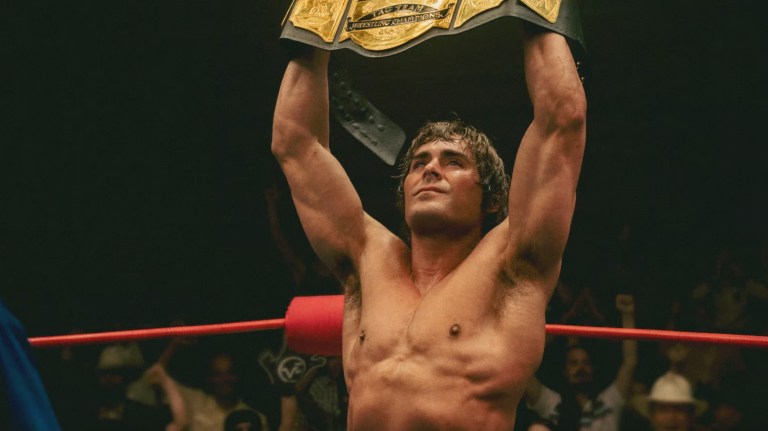
Table of Contents
Certain movies leave you feeling heavier than before you watched them. They make you confront the darker aspects of yourself and the world around you. These films are dark dramas. What makes dark drama such a special genre is that it encompasses others, especially thrillers and psychological movies. The battle between hope and nihilism is the center stage of these stories and viewing them can be a powerful cathartic experience. They may even leave you surprised at which side you choose.
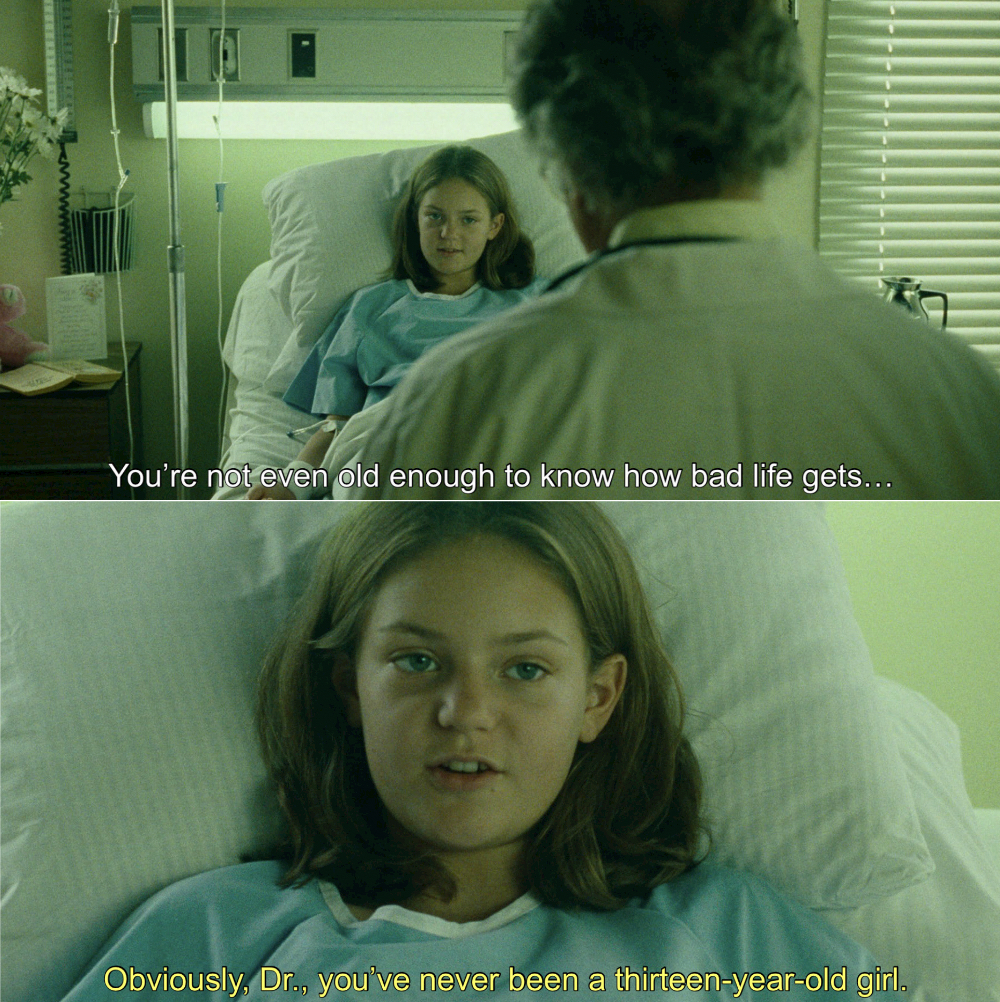
All of these films tackle “taboo” subjects that usually remain hidden in the dark. Unlike horror movies, they won’t leave you looking behind you for the monster. You will be looking within. Are you prepared to peer through the darkness?
Best Dark Dramas
One Flew Over The Cuckoo’s Nest (1975)

Some dark dramas, like this one, offer laughter through the tears. Sometimes you even forget the true darkness that these characters face. Randle Patrick McMurphy (played by Jack Nicholson) has the same effect on the patients in the mental institution with him. Randle transitions from trickery to vulnerability several times throughout the film. We end up questioning where the line is between complete sanity and mental illness. Filmmakers stay true to the 1962 novel by filming on location at Oregon State Hospital. Patients were even part of the crew, and some cast members slept alongside them in the ward at night.
The Dead Poet’s Society (1989)
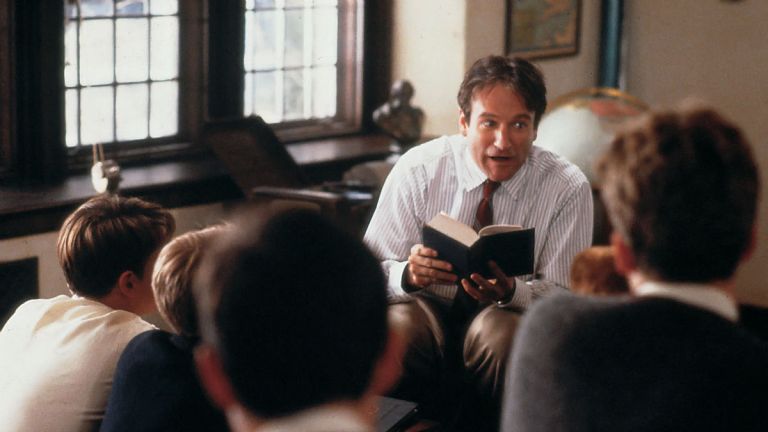
Directed by Peter Weir (Picnic at Hanging Rock), this is a coming-of-age drama is set in 1959 at an all-boys preparatory boarding school, Welton (or as the students refer to it, Hellton). A new subversive teacher, John Keating (Robin Williams in one of his best roles), encourages the boys to read poetry and seize the moment for romantic, life-affirming gestures. This comes in conflict with the boys’ upbringings and the school’s values of conformity, stoicism and achievement in traditional fields. One student, Neil Perry (Robert Sean Leonard) takes to Keating’s teachings and finds a new thirst for life when he is cast as Puck in a local production of A Midsommar Night’s Dream. However, his strict father who has sacrificed for him to attend Welton and hopefully get into a good college and find a high-paying career, forces him to choose between a life of passion and one of traditional success-seeking.
The Virgin Suicides (1999)
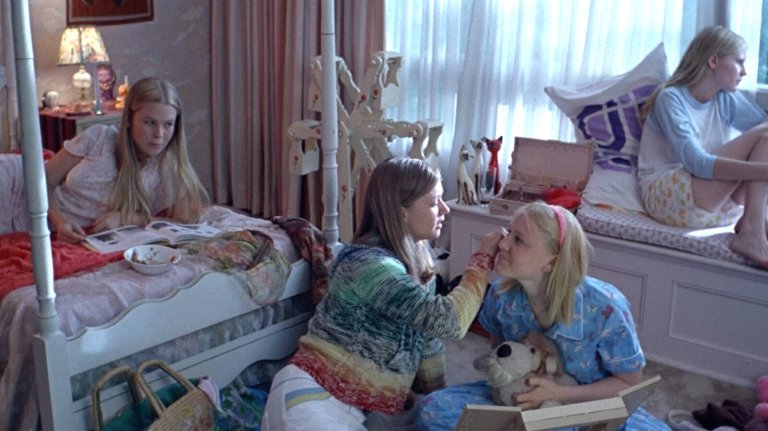
Sofia Coppola’s feature directorial debut is a psychological romantic drama based on the book of the same name by Jeffrey Eugenides. a group of sisters attempts to make it through their teenage years alive—a mission harder than you may think. This is perfectly told in the famous line, “obviously, doctor, you’ve never been a 13-year-old girl,” when a psychiatrist accuses one of the suicidal sisters of not yet understanding how bad life can get. Sofia Coppola tells the story with light and dreamy imagery that beautifully contrasts with the original novel’s subject matter.
Girl, Interrupted (1999)
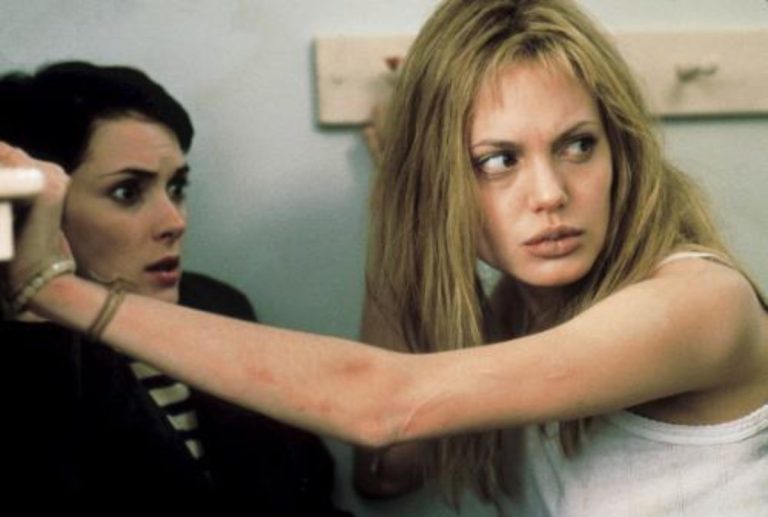
After Susanna (Winona Ryder) attempts to commit suicide, she is institutionalized in a psychiatric hospital. On the ward she meets Lisa (Angelina Jolie), a rebellious and charming sociopath and Daisy (Brittany Murphy), a fragile teen who was sexually abused by her father and suffers from OCD and self-harm. The darkness in this film lies in truthfulness; how easy it is to fall into “insanity” in a society of strict rules. The combined forces of fragility (Daisy) and brutality (Lisa) exist not only in this film, but in us and the world around us. Other stars who make an appearance in Girl, Interrupted are Jared Leto as Susanna’s lover, Clea Duvall, Elisabeth Moss and Angela Bettis as her ward-mates and Jeffrey Tambor, Vanessa Redgrave and Whoopi Goldberg as hospital staff.
White Oleander (2002)
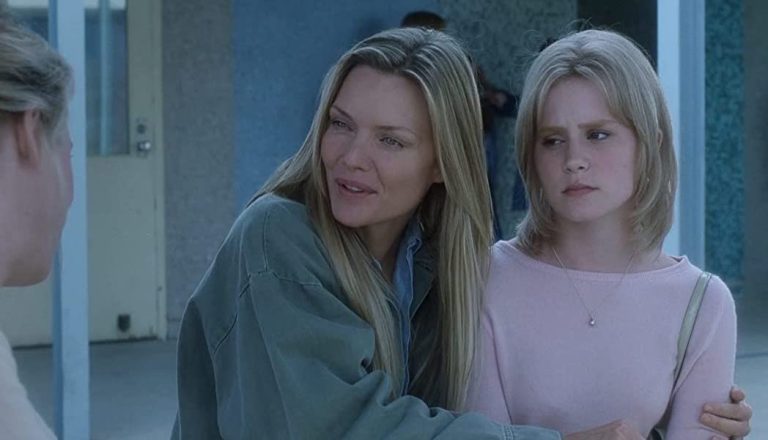
In this novel adaptation, Ingrid (Michelle Pfeiffer) uses beautiful flowers as poison. Milk is cinema’s favorite symbol of nutrition and purity. Naturally, this is what Ingrid uses to deliver her poison. This coming-of-age story takes place in one foster home after the next, each abusive in its own way. Astrid (Ingrid’s daughter) grows to be familiar with darkness in its many deceiving forms, which we, the audience, fully absorb.
The Sunset Limited (2011)

A suicidal train jumper discusses the meaning of life with the man that pulled him from the tracks. The dialogue is the most important aspect of this film; it’s practically the only aspect. There is no distraction from the beautiful dialogue between two nameless characters. Tommy Lee Jones directs and stars alongside his positive counterpart, Samuel L. Jackson.You’ll test your own will as these powerful actors argue over life and whether it is worth living. The heaviness that follows this film may feel like a burden, but you will be able to bear it with a reignited inner world.
We Need To Talk About Kevin (2011)
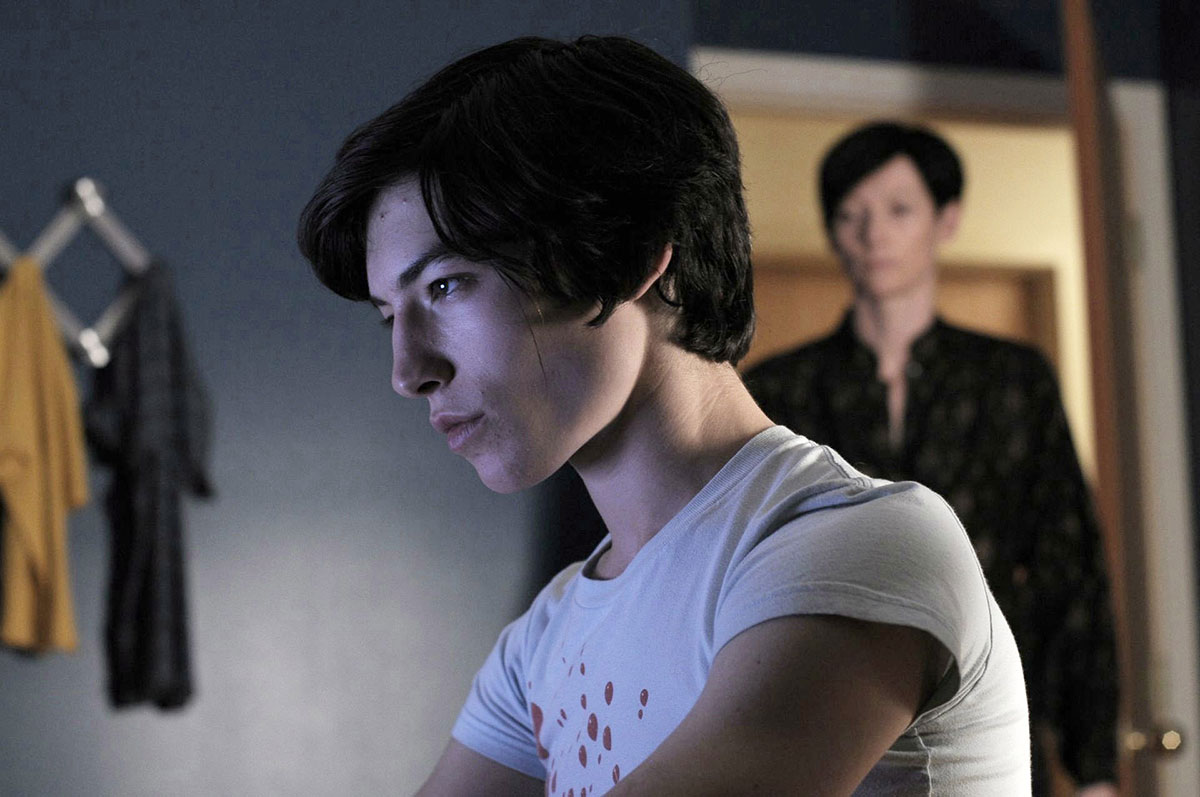
A psychological thriller drama about a woman, Eva (Tilda Swinton), who isn’t impressed by motherhood and dislikes her son Kevin (Ezra Miller). Eva notices Kevin’s violent tendencies, and Kevin notices her dislike for him, all while his father (John C. Reilly) gaslights Eva into thinking nothing is wrong. The film is eerily quiet, like the atmosphere before a storm hits. As a teenager, Kevin commits an unspeakable act of violence, leaving his mother alone to bear the consequences of his actions in the community.
Melancholia (2011)
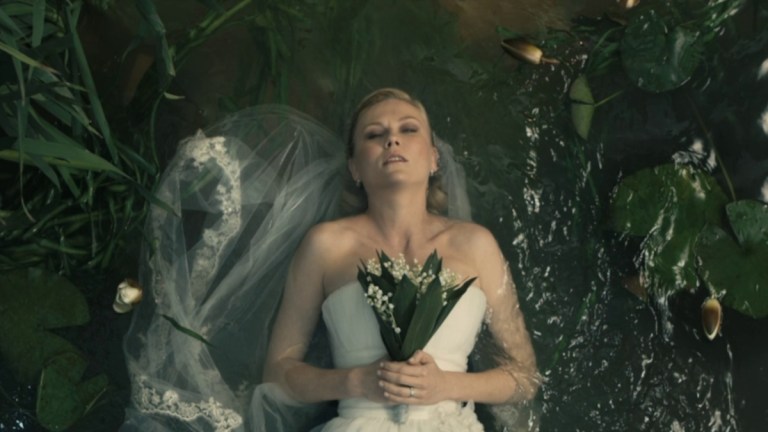
The only hope this film has to offer is false. One of the most depressing films in cinematic history, Melancholia embraces its darkness, a darkness that shines through during life’s banal moments and moments that should be happy. The world of this film soaks you in blue and sets you in slow motion. Melancholia (a planet) threatens to destroy Earth and earthlings alike. One of those earthlings, the clinically depressed Justine, does not fear Melancholia or its impending doom. She embraces it and seems to view it as a familiar part of herself. The impactful performances by the cast (Kirsten Dunst, Charlotte Gainsbourg, and Kiefer Sutherland) give a shocking realism to a story that could otherwise be outlandish. The way melancholy eclipses the brain feels like the end of the world.
Room (2015)
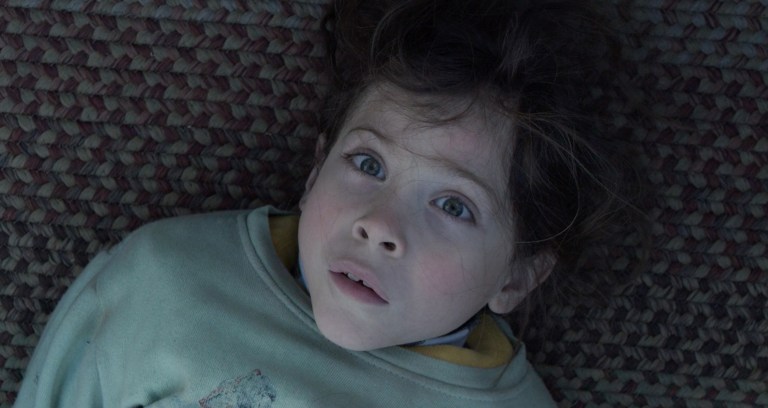
Joy (Brie Larson) raises her son Jack (Jacob Tremblay) in a room beneath her abductor’s shed. To Jack, the room makes up his entire world. The tone of the film darkens when the responsibility to escape falls on his small shoulders. The child possesses hopeful contentment, while the mother is jaded and depressed. The characters mirror the room itself. It’s a dark hole in the ground that only has a small window for light. For Joy, Jacob is that small source of light.
Fences (2016)
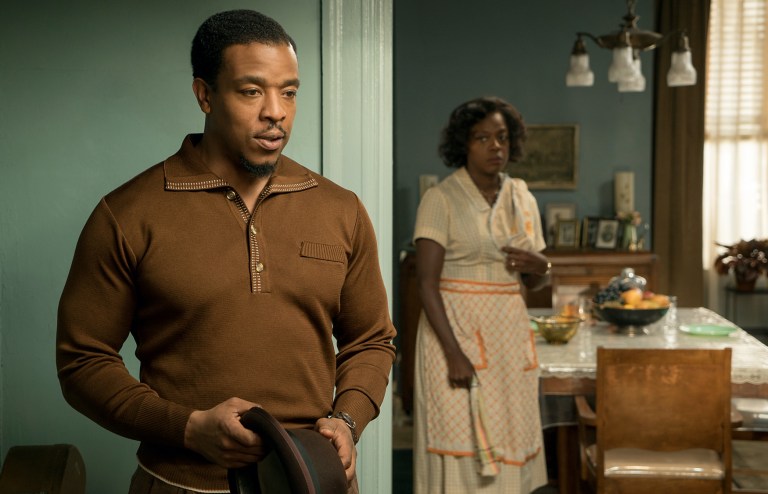
“Some people build fences to keep people out, and other people build fences to keep people in.” This impactful Pulitzer Prize-winning play is born again as an Oscar Award-winning film. Denzel Washington directs and stars in a role that is as powerful as it is painful. Troy (Denzel Washington) and Rose (Viola Davis) navigate family life through tragedy and deceit. This period drama makes for an intimate look at generational trauma. Each generation tries to rebuild life from the rubble of their parents’ storm.
The Florida Project (2017)
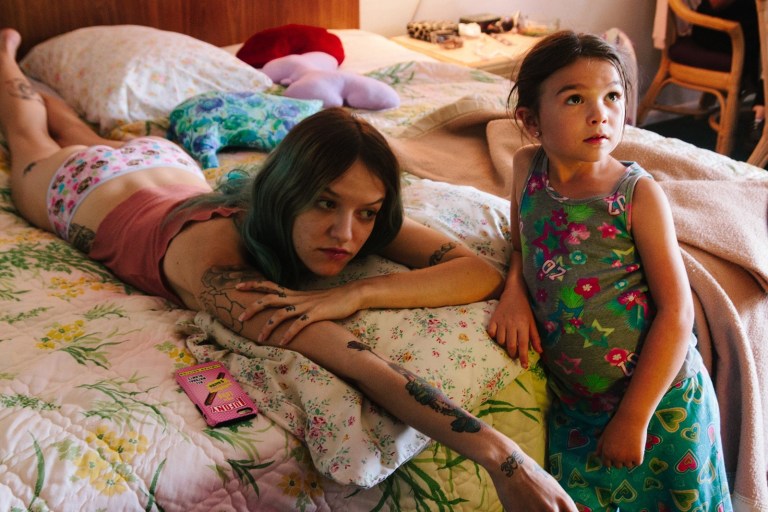
It’s colorful and uncomfortable. Being set close to Disney World, the land of dreams, lures us into a false sense of happiness and hope. Things are much darker under the surface, as Halley’s methods of making rent begin to put her child (Moonee, age six) in danger. Some aspects of childhood remain joyous in poverty. Others, like security, are unattainable. The film displays this perfectly, showing the small family’s happy moments alongside their stress. The surreal ending that some may call bizarre leaves us wondering about what a happy childhood is and who has the privilege of having one.
You Were Never Really Here (2017)
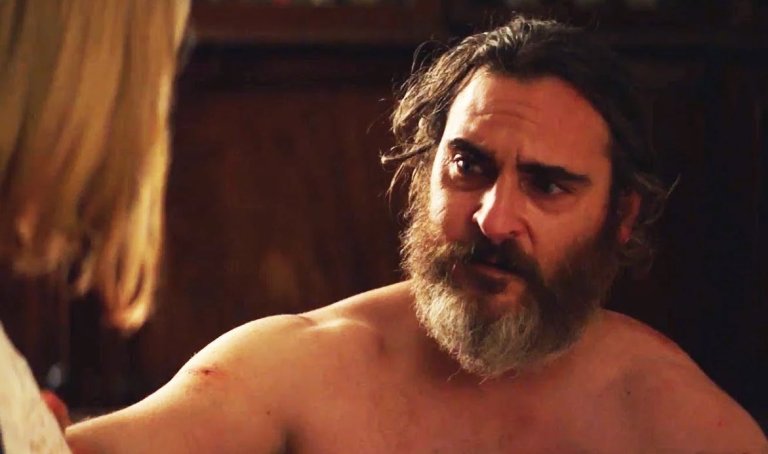
Lynn Ramsey’s bold and daring film found its first audience at Cannes Film Festival. The story tackles the rawest and most taboo subjects. Joe (Joaquin Phoenix) is on a mission to rescue Nina (daughter of a New York State Senator) from a sex trafficking ring. While looking for Nina and fighting those who entrap her, Joe battles with his own mind. Trauma-caused mental illness threatens to take his life before he can save hers. Darkest of all, the film seems to lift a veil of secrecy that hides New York City’s dark underground. Because it cuts between scenes of dark fantasies and an even darker reality, watching this film is a breathless experience.
Three Billboards Outside Of Ebbing, Missouri (2017)
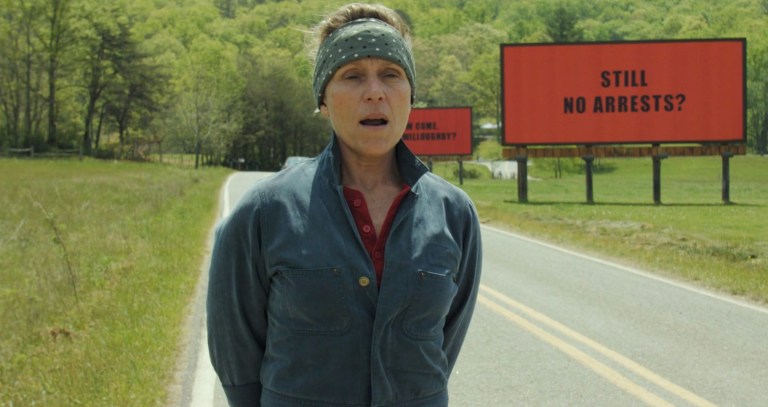
Once while on a Greyhound bus in Texas, director Martin McDonagh saw three billboards, all pushing the same theme. This visual inspired his film about a grieving mother named Mildred (Frances McDormand) who seeks justice. Attempting to force a neglectful police department into action, Mildred purchases three billboards. They read “RAPED WHILE DYING,” “STILL NO ARRESTS?,” and “HOW COME, CHIEF WILLOUGHBY?” Mildred Hayes was written with Frances McDormand in mind, making for a seamless blend between actor and character. This film forces us to sit in her agony as she demands the police and audience pay attention to an abominable crime that is far too common. These three billboards will linger in your mind far past the credit roll.
Promising Young Woman (2020)
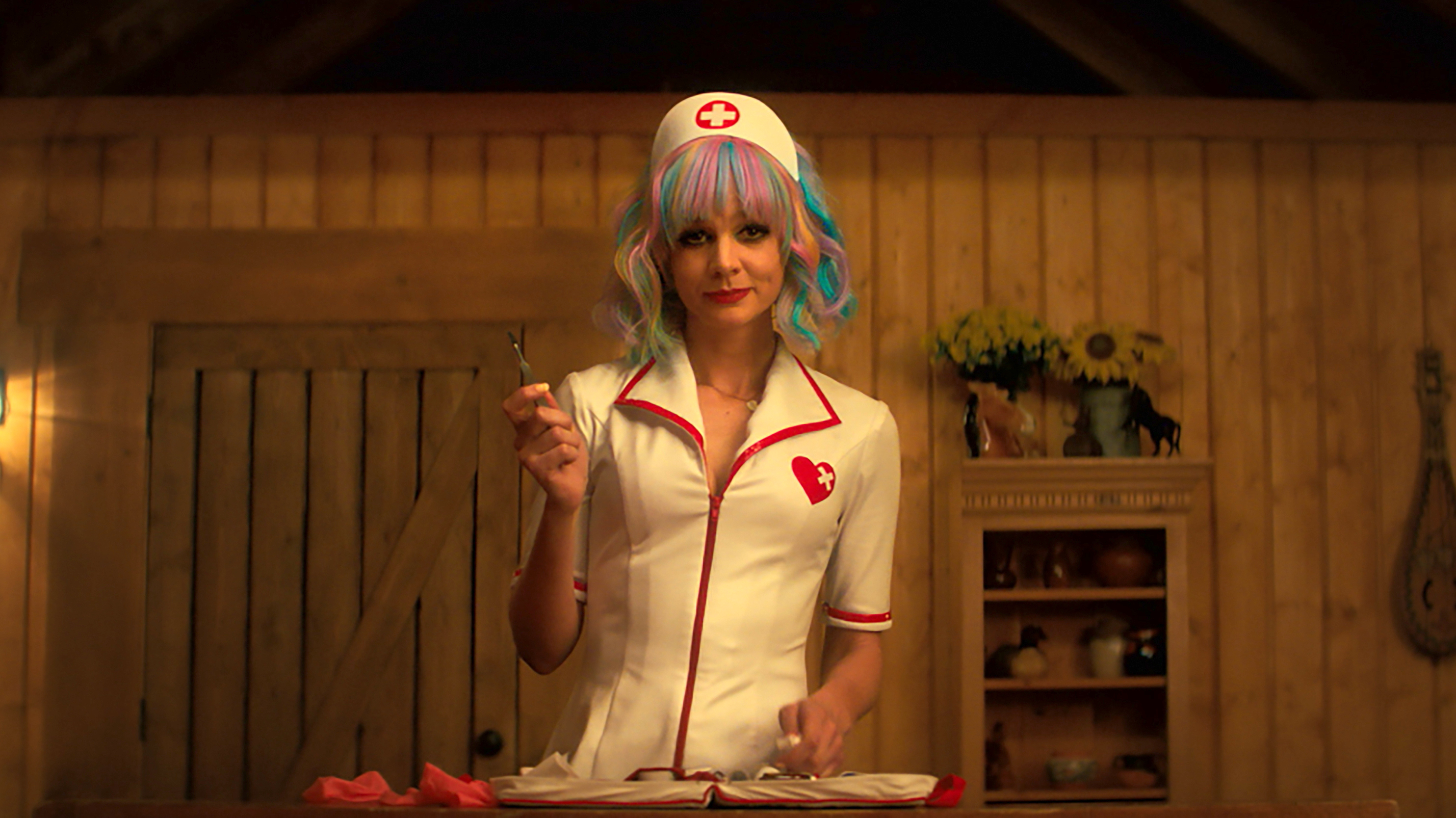
This story is one of accountability—not only for rapists but those who defend them and who gaslight victims. They fall prey to Cassie (Carey Mulligan), a woman who dropped out of med school after her best friend was raped and later took her own life. Now Cassie spends her time serving vengeance to sex predators one at a time. This revenge film dives into in the complexities of rape, trauma and survival. It is uniquely depressing as there are no winners in rape culture.
The Iron Claw (2023)
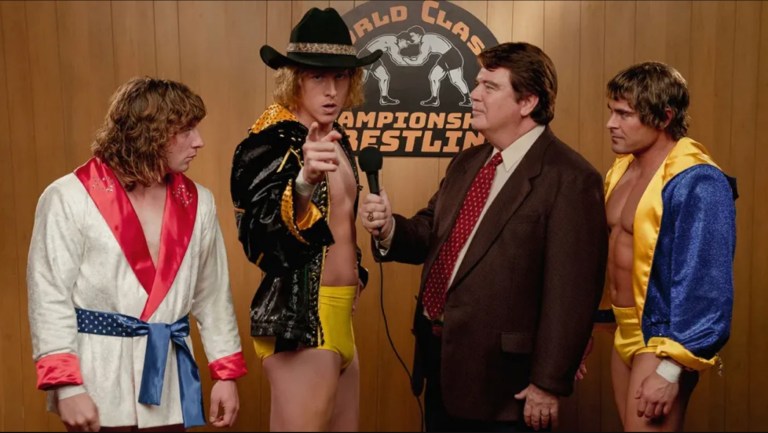
A biographical sports drama distributed by A24, The Iron Claw is based on the true story of the Von Erich professional wrestling family. After failing to become a champion in his own wrestling career, Fritz Von Erich (Holt McCallany) focuses on raising his four sons to take over the wrestling world, pushing them to extreme lengths and often pitting them against each other. As his sons Kevin (Zac Efron), Kerry (Jeremy Allen White), David (Harris Dickinson) and Mike (Stanley Simons) strive to win their father’s approval, the “Von Erich curse” strikes the family again and again. One criticism of the film was writer/director Sean Dunkirk’s decision to leave out youngest brother Chris Von Erich (who died by suicide in 1991) completely because he felt the 132-minute movie couldn’t “withstand” more tragedy.
More Great Dark Drama Movies
- A Clockwork Orange (1971) Kubrick’s dystopian “ultra-violent” film focuses on a charming British thug and the attempts at rehabilitating him through forced psychological conditioning.
- Dolores Claiborne (1995) A Stephen King adaptation about a woman accused of murdering an old lady she spent years caring for. Kathy Bates says her role as Dolores is her favorite performance.
- American History X (1998) A former neo-Nazi struggles to prevent his younger brother from going down the same path that he did in this gut-wrenching crime drama.
- Requiem for a Dream (2000) Four addicts deteriorate in their own disastrous delusions in this novel adaption by Darren Aronofsky.
- Morvern Callar (2002) Lynne Ramsay’s Scottish film explores a character’s deep denial and grief as she attempts to erase the only guarantee in life—death.
- Fishtank (2009) Andrea Arnold directs this British film about an impoverished young woman facing an abusive home and a hostile world outside of it. As with most of Andrea Arnold’s films, this one is gritty and unrelenting.
- Tangerine (2015) Famously filmed on the iPhone 5s, this film focuses on sex workers—their relationship with each other and the outside world. Situations quickly transition between comical and dangerous, but the film’s big heart beats mightily throughout.
- Moonlight (2016) Largely shot in a Miami housing project, this film offers a semi-autobiographical look at growing up as a minority in a drug-filled Miami. It broke barriers on screen and on set, with the first black woman (Joi McMill) nominated for an editing Oscar, and the first Muslim (Mahershala Ali) to win an acting Oscar.
- Beautiful Boy (2018) Steve Carrell and Timothee Chalamet star as a father and son who relationship is hijacked by addiction.
- Aftersun (2022) Charlotte Wells’ coming-of-age drama isn’t explicitly dark, but the melancholy aesthetic and plot capture the bleak nostalgia of remembering our parents as we saw them as children.
Further reading:
